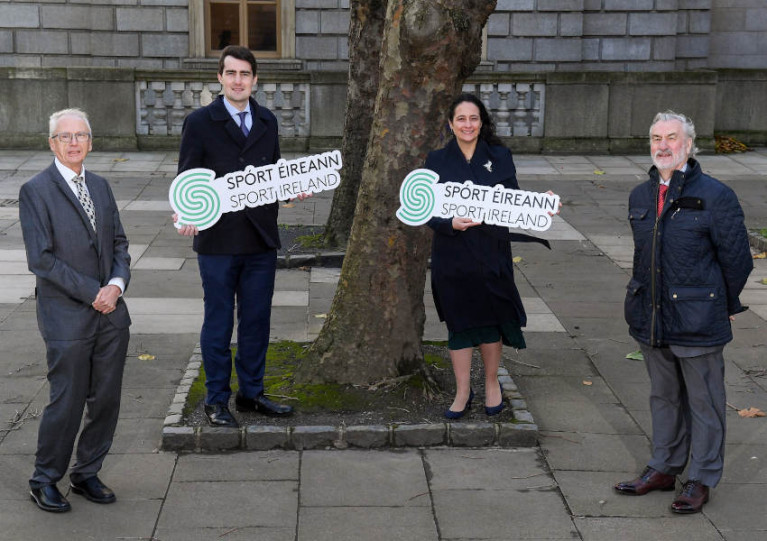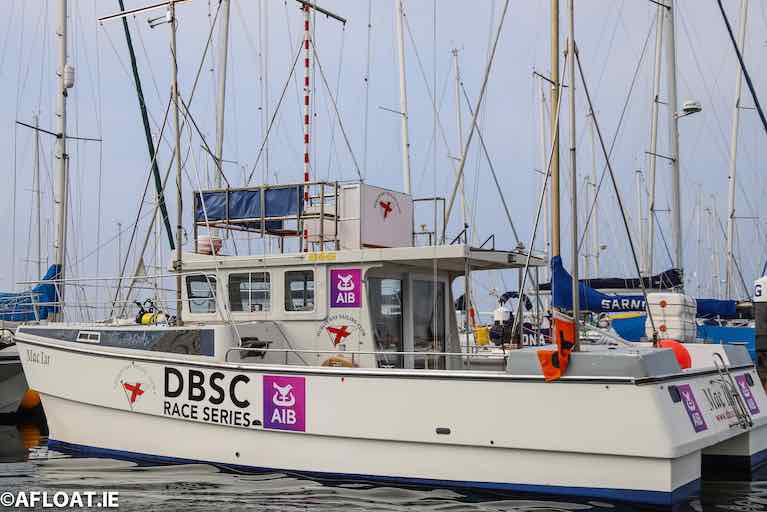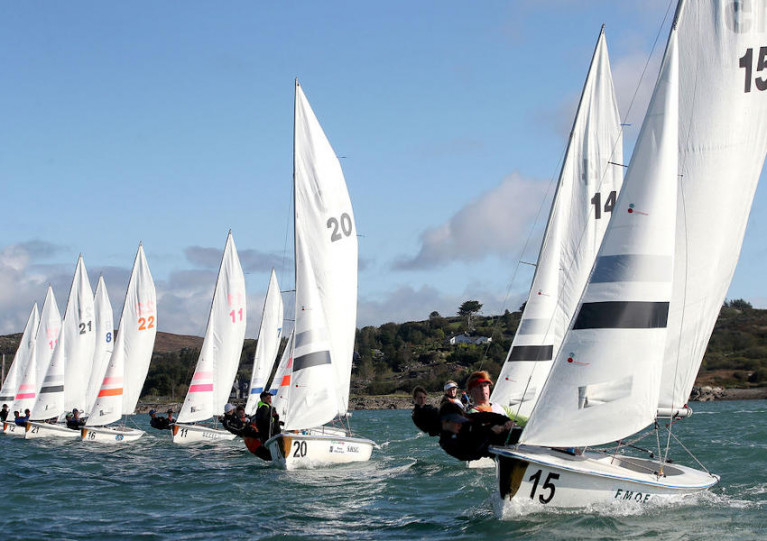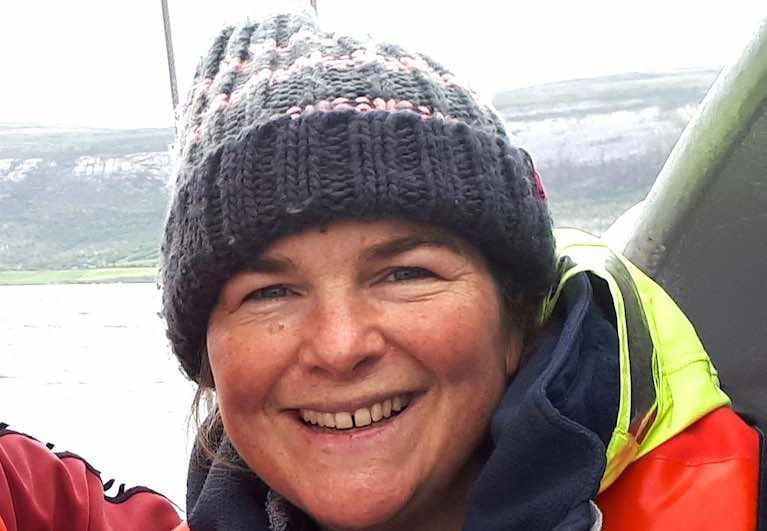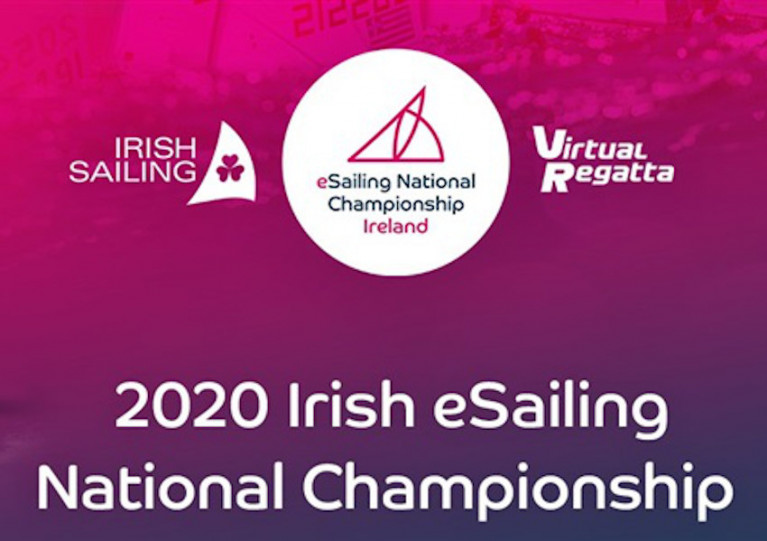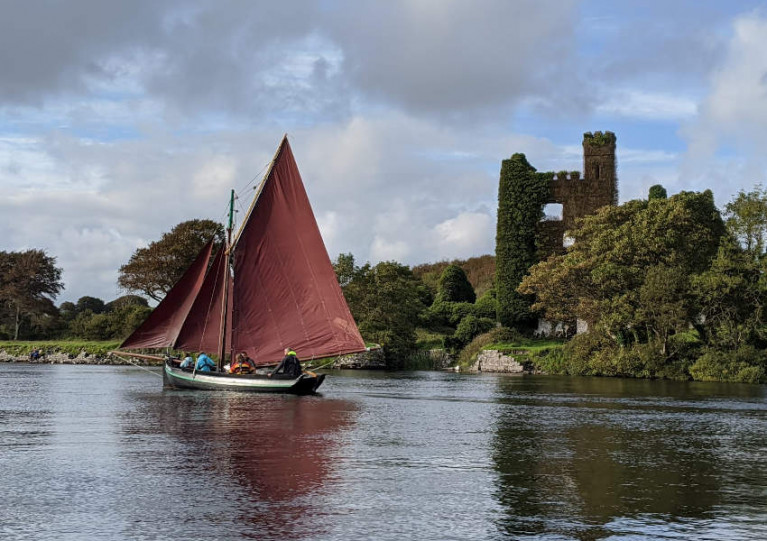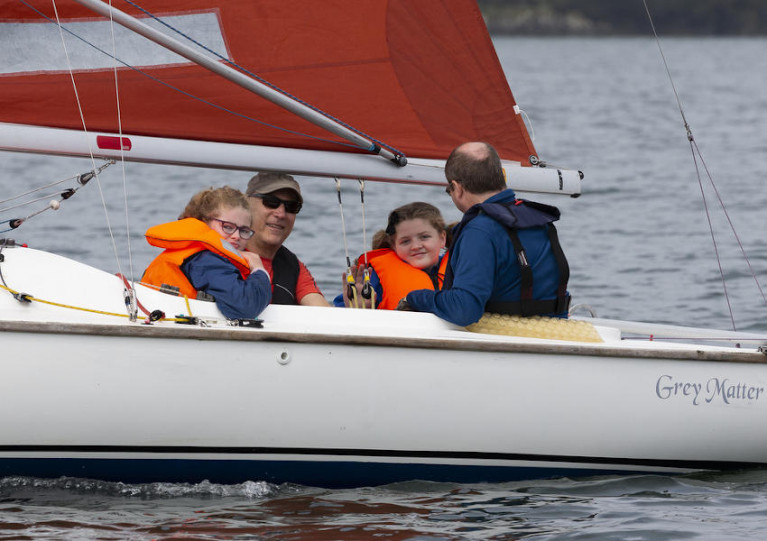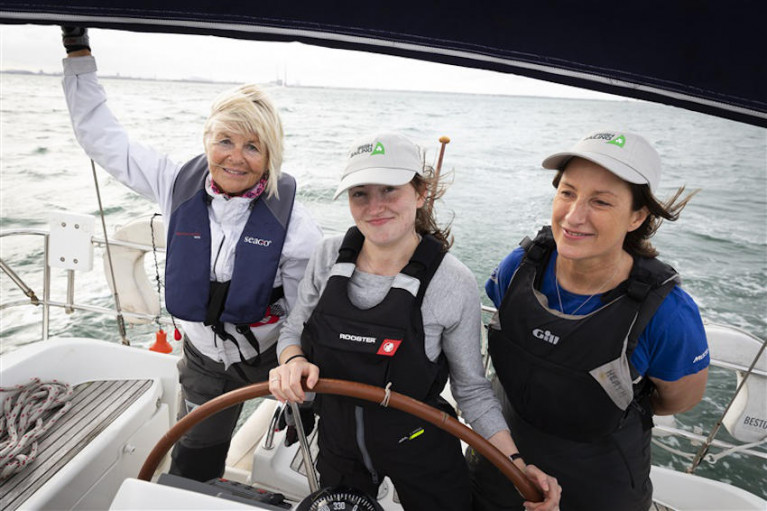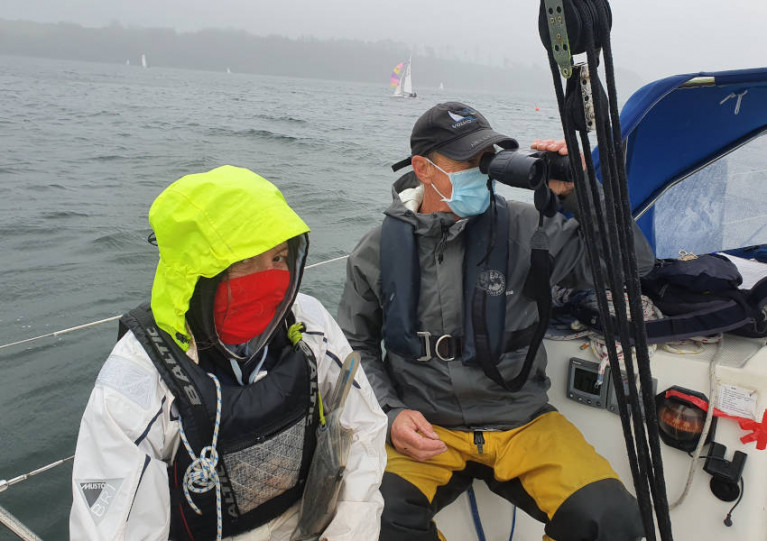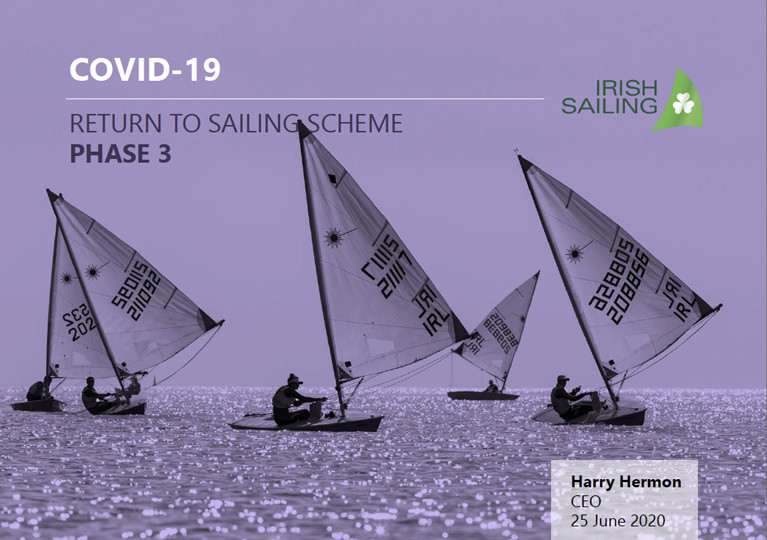Displaying items by tag: Irish Sailing
Sailing & Aquatic Sports Share in ‘Unprecedented’ €85m Funding Package to Address Covid-19 Challenges
Sailing in Ireland is set to benefit from an “unprecedented” €85 million funding package for the sports sector.
Sport Ireland chairman Kieran Mulvey said the announcement — made today (Monday 2 November) by Sport Minister Catherine Martin and Minute of State for Sport Jack Chambers — represents “the largest ever investment package for sport”.
It follows a €70 million package approved over the summer as the Government aims to address some of the extended challenges of the coronavirus pandemic.
John Treacy, chief executive of Sport Ireland, said: “The initial schemes announced in June were designed to support organisations with Covid-19-related losses in 2020.
“However, having engaged with our funded bodies, we understand that the current Level 5 restrictions present additional challenges.
“As such, we are ring-fencing finances to address any immediate needs that may arise in the sector in the coming weeks.”
Among the allocations to national governing bodies, Irish Sailing will receive €650,000, while Rowing Ireland gets €149,000, €70,000 goes to the Irish Underwater Council, €50,000 to the Irish Surfing Association and €48,000 to Canoeing Ireland.
The Olympic Federation of Ireland has welcomed the funding “which will provide much needed support for a wide variety of Olympic sports, many of which have been severely impacted by Covid-19”.
It adds that the package will also “provide some stability to protect performance programmes for those elite athletes currently preparing for the Olympic and Paralympic Games in Tokyo next year”.
No Exemptions For Sailing From Level 3 Restrictions — But Final DBSC Race Still A Possibility
Dublin Bay Sailing Club’s final Saturday race of the truncated summer season remains a possibility if the capital is lifted out of Level 3 coronavirus restrictions on Friday 9 October.
Earlier today (Thursday 1 October), Irish Sailing provided an update on the current situation for sailing under the new five-level plan, confirming that the sport will have no exemption from the current NPHET advice which has tied up boats in Dublin and Donegal.
Irish Sailing says it made representations to Sport Ireland and the Expert Group in respect of the relatively low risk activities that sailing encompasses.
But the current guidelines remain — despite exceptions being made for high-level rugby and GAA competitions.
Sailing’s governing body in Ireland also moved to clear up confusion of the changing definition of a ‘pod’ in the revised health guidelines.
“Under Level 3, Sport Ireland uses the term ‘non contact pods’ to counteract the risk of people being close contacts, and that people within a pod must not ‘spend more than 15 minutes within 2 metres of someone either indoors or outdoors. Where sports can’t achieve this, they should modify activity appropriately.’
“For sailing this means we can only do single-handed or same-household sailing unless social distancing can be maintained while aboard.”
Irish Sailing added: “Sport Ireland are working with all sporting bodies to clarify any confusion and ensure consistency across the sporting sector is maintained within the Government’s five-level plan.”
Disappointment For Youth Sailors At Cancellation Of This Weekend’s All-Ireland Juniors
The cancellation of the Irish Sailing All-Ireland Junior Championships this weekend is “a big disappointment” for all involved, both those competing and being the scenes, the governing body has said.
As previously reported on Afloat.ie, the event scheduled for Schull in West Cork was called off in the wake of new coronavirus travel restrictions for Dublin, where more than half of competitors are based.
Sixteen youth sailors and their crew from 10 classes had been looking forward to racing in Schull Harbour in a unique event that sees all nominees compete in the same class of boat — this year would have been the turn of the TR3.6s.
“We were so disappointed to cancel the Junior All Irelands – the level of sailing is excellent and it’s always a fun event,” said Irish Sailing’s chief executive Harry Hermon.
“Personally, I was looking forward to it as I’ve seen so many young people around the country doing a lot of sailing this summer, and I wanted to chat to this group about what they’d experienced.
“I’d like to highlight as well the huge amount of work done behind the scenes right up until the point of cancellation, and I’d like to thank the hosts Fastnet Marine and Outdoor Education Centre, the organising committee and the large number of volunteers who make these events such a pleasure to work on.”
The list of successful nominees was released last week and included five girls, two Irish Sailing Academy sailors, and five Laser sailors.
There was a good mix of club representation but Howth Yacht Club just pipped the lead with three members on the list: Eve McMahon, Johnny Flynn and Luke Turvey.
The list included two family teams (Trevor and Russell Bolger, and Charlie and Lucia Cullen, all RStGYC), one set of twins (Conor and Jack Galligan, Greystones SC), and two siblings on different teams (Clementine and Nathan van Steenberge, National YC).
There were two female-only teams (Chloe Murphy and Abigail Johnston, Lough Ree YC, and Zoe Whitford and Kelly Patterson, East Antrim Boat Club), and Eve McMahon chose her Laser Academy teammate Tom Higgins as crew.
Optimist sailor Ben O’Shaughnessy of the Royal Cork Yacht Club said: “It would have been a great event with great organisation but unfortunately it was cancelled for all the right reasons. I’m looking forward to sailing in the future and getting back to race season.”
Irish Sailing says work has already begun on the 2021 event which will take place on the weekend 25 and 26 September at a venue yet to be confirmed.
Galway Voyager & Marine Scientist Vera Quinlan Joins Board of Irish Sailing
Noted ocean voyager Vera Quinlan has joined the Irish Sailing Board of Directors, where she will head up the Cruising Policy Group.
Vera (of Galway Bay Sailing Club) began sailing at the age of 10 on Lough Derg. She started in a Mirror, then moved to a Laser, and spent many years cruising with her parents in Ireland, France and Scotland. She sailed from Sydney to Hobart in 1988 on board the Sail Training Brigantine Asgard II, and in 2004 fulfilled a lifelong ambition to skipper a yacht across the North Atlantic.
In 2019/20 Vera fulfilled another ambition: an Atlantic-circuit sailing adventure with her family. On board their yacht Danú, a 43 ft Bruce Roberts Mauritius, she and her husband Peter Owens and children Lilian (11) and Ruairi (9) spent fourteen months travelling. Highlights included climbing and hiking in the Pico de Europa, crossing the Atlas Mountains on foot with mules, riding camels in the Sahara, sailing transatlantic in the Trade Winds, exploring the Amazon rivers of French Guiana, and spending ‘lockdown’ in Barbuda exploring its pristine reefs before returning via the Azores and on to Ireland, where she and her family became the Afloat.ie "Sailors of the Month" for July 2020 in recognition of their successful and very complete voyage.
Vera is an active member of Galway Bay Sailing Club and previously held the position of Rear Commodore Training. She is involved in all aspects of cruising through both the Irish Cruising Club and the Ocean Cruising Club. She studied a BSc in Marine Science and Hydrography at Liverpool John Moores University and followed a career in deep water 3D seismic exploration. In 2006 she began work at the Marine Institute of Ireland in Galway and concurrently was awarded an MSc in Coastal Zone management. She is currently working as a marine scientist on INFOMAR, Ireland’s seabed mapping programme.
Vera is delighted to be able to support Irish Sailing as a board member, and commented: “As a fan of Jacques Cousteau the sea has certainly cast its spell on me…. at sea, I truly feel alive."
Contenders For eSailing Worlds & National Playoffs Revealed
The latest Irish Sailing eSailing National Championship leaderboard reveals the top 10 qualifiers for the Nations Cup playoffs — and the challengers nipping at their heels for the coveted national title.
Irish Sailing’s first eChampionships were launched in early April, and since then 960 Irish players have signed up.
The top 10 ranked Irish sailors on 1 September 2020 will automatically represent Ireland at the eSailing World Championship Finals Playoff which will take place later this month.
Colin Kavanagh of Howth Yacht Club topped the board with Cillian Dickson in second (Howth and Lough Ree).
In third is Olympic sailor Finn Lynch (National YC), who just pipped Roisín McCormack (Foynes YC), president of the Mermaid Sailing Association, for the place.
Making up the rest of the top 10 are Mick Farrell, Paul McLaughlin, Graeme Grant, Andrew Baker, Tom Fox and Ronan Downing.
But it’s the top 20 who will now fight for the position of Irish eSailing National Champion.
The rest of the table in hunt for the national title comprises Ryan Seaton, Colin O’Sullivan, Chris Raymond, Shane Hughes, Max Tipp-McKnight, Cian Mollen, Atlee Kohl, James O’Connor, Michael Lynch and Daniel Raymond.
Playoffs for the domestic championship will be held on Tuesdays 3 and 10 November, with three races each, organised by Emmett Dalton of Howth Yacht Club. The first night will be raced in virtual J70s, followed by 49ers.
Irish Sailing says it wants to encourage as many people as possible to get sailing — with eSailing just one more aspect of this.
“We hope that by engaging with a brand new audience of eSailors, we’ll be able to convert them to real life sailors in the future,” the governing body added.
Irish Sailing teamed up with World Sailing and Virtual Regatta to launch the Irish eSailing National Championship in the middle of the coronavirus restrictions.
The game is free to play online or via app — and with the launch of the Irish version, local players can register as Irish and aim for the top of a new national leaderboard.
Irish Sailing Welcomes Galway Hookers Into The Fold
Irish Sailing has welcomed its newest affiliate in the shape of the Galway Hooker Sailing Club.
The club was formed in 2017 when a group of friends came together to revive and retain the Galway Hooker tradition in Galway.
The Galway Hooker is a traditional fishing vessel, built and designed in Galway, and originally dates from the mid 19th century. Their typical red sails are widely seen in logos and brands around the city.
Current club commodore Ciaran Oliver is one of the founding members and together with a current crew of about 100 people has built a steadily growing club with strong links to the local community — particularly through teaching people the skills to sail these iconic vessels.
To learn more, follow the Galway Hooker Sailing Club on Facebook and Instagram or visit their website at GalwayHooker2020.org
Watersports Inclusion Games Cancelled Over Coronavirus Concerns
This year’s Watersports Inclusion Games, which had been set for 5-6 September at Lough Derg Yacht Club, have been cancelled over continued coronavirus concerns.
In a statement, Irish Sailing said that “the current trajectory of the virus spread, coupled with the logistics, people involved and format of the event brought us to this decision”.
Ireland’s national governing body for sailing expressed its thanks to all “who worked so hard in trying to bring this year’s Inclusion Games to fruition”.
Lough Derg YC will instead host next year’s games, being planned for 18-29 June 2021.
The news follows the cancellation of the Women at the Helm Regatta later this month over similar concerns.
Women At The Helm Regatta Cancelled Over Covid-19 Concerns
It is with great reluctance that Irish Sailing have decided, along with hosts the National Yacht Club, to cancel the Women at the Helm regatta that had been set to take place later this month, writes Gail McAllister.
Despite the tremendous energy behind the event, the health and safety of sailors is our number one priority, and in the light of the ongoing Covid-19 situation and the complexities arising from this it became clear that the event could not go ahead.
Irish Sailing are extremely disappointed for yet another event to be lost to Covid this year, but now look forward to next year and the Women at the Helm in Royal Cork Yacht Club on the weekend of Saturday 4th and Sunday 5th September 2021.
On a personal note, I would like to thank everyone for their incredible support and enthusiasm for Women at the Helm as an event and the Take the Helm campaign to encourage more women to move into positions of leadership. The campaign goes beyond the race course and creates leaders on committees, instructor teams and management.
Guidance On Sailing Events During The Covid-19 Pandemic
A group of volunteer race officials have worked together to create a guidance document to help in planning and implementing safe and happy sailing events for the season ahead.
Irish Sailing has now published these guidelines, with details on planning, timelines, risk assessment and other considerations and controls for running both major national and smaller local events during the coronavirus pandemic.
This is an active working document and will be updated as Government guidelines changes throughout this pandemic. See the current full guidance document (as of 8 July 2020) attached below.
Irish Sailing has issued it latest guidance document to take into account the easing of Covid-19 restrictions announced by Government last week, and which come into effect from Monday 29 June. (Downloadable below)
Essentially, there is little change in the transition from Phase 3 to 4, so this plan is likely to direct how our sports will be organised for the foreseeable future.
As Afloat reported here, the plan also outlines how a proposed pod system in order to facilitate racing that begins again under phase 3.


























